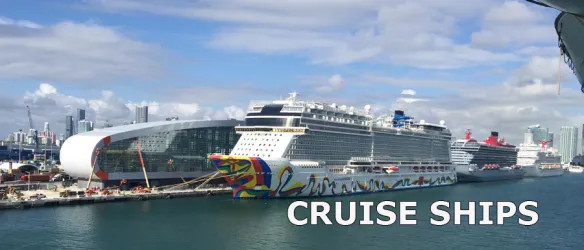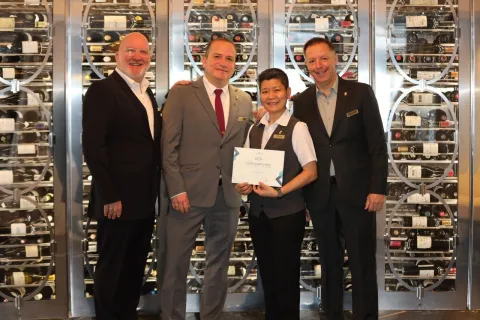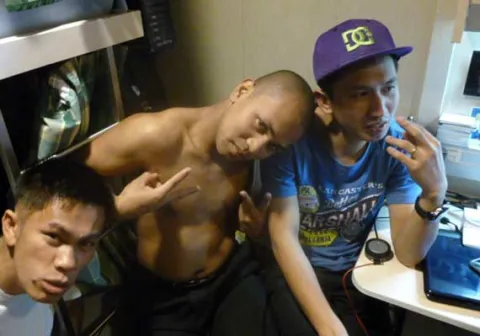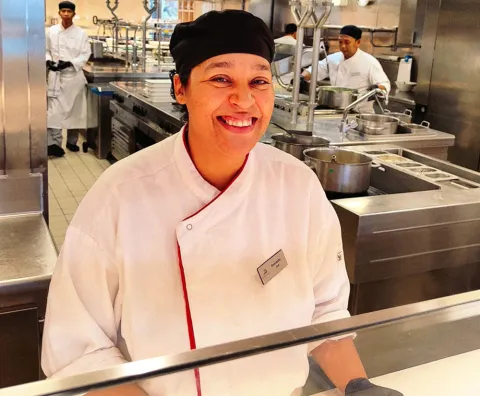
For many aspiring technicians seeking a career in cruise ship entertainment, the journey begins with the Production Assistant (PA) role. It’s an entry-level yet pivotal position within the Production Department of Princess Cruises, often filled by internal transfer applicants who meet a detailed set of criteria. While the title might sound simple, the scope of a PA’s daily responsibilities is vast—and essential to the flawless execution of onboard entertainment.
Here’s a closer look at what it truly means to be a Production Assistant aboard one of the world’s most recognized cruise lines.
The Core of the Job: More Than Just Technical Support
At its foundation, the role of a PA is structured around Key Result Areas (KRAs)—performance benchmarks that ensure every show, event, and technical requirement meets Princess Cruises’ high standards. These KRAs include:
Stage and Show Operations: Supporting scenery, lighting, props, and rigging across lounges.
Technical Know-How: Maintaining proficiency in audio, video, and lighting gear.
Communication: Keeping accurate notes, handovers, and staying in sync with the team.
Training and Development: Participating in coaching and sharing knowledge.
Safety and Compliance: Adhering strictly to fleet and international regulations.
Values and Culture: Representing the Princess brand professionally and inclusively.
Each area contributes to performance evaluations and highlights the multifaceted nature of the job.
The Daily Grind: A PA's Ever-Changing Schedule
Life as a PA is rarely repetitive. Duties span across various ship zones and timeframes. A typical day could involve any combination of the following:
-
Matrix Rounds
Starting early, PAs are responsible for daily ship checks to ensure public venues are ready for passengers—this includes verifying background music levels, adjusting lighting, and setting up mics or promotional displays. -
Presentation Setups
From lectures to wedding ceremonies, PAs often manage mobile A/V setups in unconventional spaces—from the chapel to revenue areas like the casino or photo gallery. Adaptability is critical when no fixed tech infrastructure exists. -
Daytime Activities
Independence is essential. PAs lead solo operations of video game sessions, trivia games, poolside events, and even art auctions. Time management and punctuality are non-negotiable. -
Evening Entertainment
Night brings the real spotlight. PAs may be stationed in show lounges assisting with cabaret acts, running follow-spot lights, or even solo-operating the audio/lighting desk during band sets and guest performances.
-
Band Setups & Strikes
Live music requires fast, clean transitions. Whether setting up a jazz trio or a full band, PAs handle mic placements, monitor levels, and then swiftly “strike” (tear down) afterward—all while safeguarding equipment.
Show Time: Behind the Curtain
When it’s time for the grand production shows, PAs are deeply involved:
Pre-show: Helping construct scenic sets, mopping the stage, placing props, and ensuring safety.
During show: Managing backstage movements or spotlighting, responding to cue calls.
Post-show: Breaking down the set and resetting the stage for the next day’s lineup.
Movies, Onloads & Emergencies
PAs also manage technical support for Movies Under the Stars (MUTS) and lounge cinema screenings. This involves everything from curtain control to coordinating with Broadcast in the event of playback issues.
And when new shows or illusionists join mid-cruise, PAs assist in the onload and offload of heavy gear, often navigating tight crew spaces with steel-toed boots and gloves.
The Handover Challenge
Unlike other roles with overlapping training periods, PAs must leave behind detailed handover notes. These serve as the blueprint for their replacement, detailing equipment quirks, event logistics, and lounge protocols. In a role where every second counts, passing the torch effectively is essential.
The Bottom Line: Discipline, Drive, and Team Spirit
While the PA position is a stepping stone within the production team, it demands a professional mindset, technical aptitude, and relentless self-motivation. Much of the work is done independently, requiring ownership and quick reflexes when duty calls. Communication, punctuality, and teamwork aren't just encouraged—they’re the lifeline of daily operations.
For those ready to embrace the rhythm of the ship, adapt on the fly, and contribute to unforgettable entertainment experiences, the Production Assistant role aboard Princess Cruises is not just a job—it’s a launchpad into an electrifying maritime career.
“Take ownership of your job, work as a team, and you will be a valuable member in our department.”
Crew Insights
Articles and experiences shared by crew members working on cruise ship. Find out more about ship life at sea together with tips and advices for first time crew members and cruise oldtimers.












